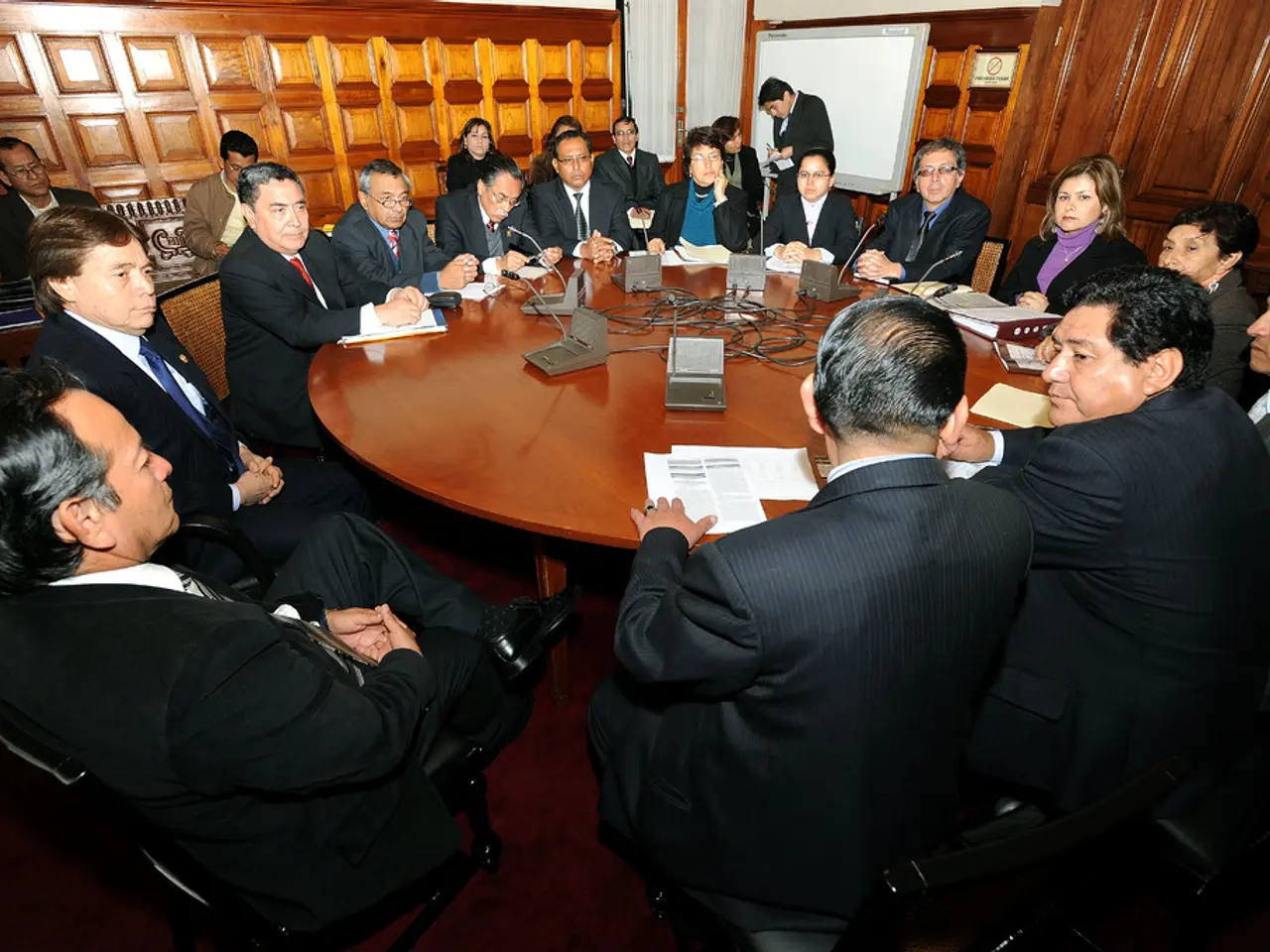U.S. national security advisor holds talks with visiting delegates prior to upcoming Lee-Trump summit meeting
Strengthening the U.S.-South Korea Alliance: A Focus on Technology and Industrial Cooperation
The U.S. and South Korea are set to bolster their alliance through a comprehensive 2025 trade deal and strategic initiatives, with a focus on semiconductors, shipbuilding, defense, automotive batteries, artificial intelligence (AI), and nuclear energy.
Finalized in August 2025, the U.S.-South Korea 2025 trade agreement reduces tariffs, capping them at 15%, and establishes a $350 billion investment fund targeting semiconductors, shipbuilding, and defense industries. This deal aims to reshape global supply chains and industrial priorities, accelerating cooperation in these critical sectors.
South Korean giants like Samsung and SK Hynix are leveraging U.S. Inflation Reduction Act (IRA) incentives to build foundries and develop high-bandwidth memory (HBM) in Texas, supplying major AI companies such as Nvidia and Microsoft. This investment supports the AI-driven semiconductor industry boom and marks a strategic realignment to secure advanced chip supply chains.
In the shipbuilding and defense sectors, South Korean companies are investing approximately $150 billion in U.S. shipyards and defense contracts. This investment addresses U.S. Navy maintenance backlogs and contributes to the broader Indo-Pacific security strategy, jointly strengthening defense industrial bases.
Trade talks and agreements are working toward eliminating caps on U.S. auto imports into Korea, including provisions to ease auto sector trade barriers and promote cooperation in electric vehicle (EV) battery development. Specific battery initiatives receive less detail in the sources, but the collaboration is expected to expand in this area.
Artificial Intelligence (AI) is another key focus, with the U.S. accelerating AI innovation and infrastructure, as outlined in the 2025 U.S. President’s AI Action Plan. South Korea’s semiconductor advances support AI hardware supply needs, indicating a tight link between AI and semiconductor cooperation in the alliance.
Additional cooperation includes a nuclear export partnership signed in January 2025, where South Korea and the U.S. jointly target the global nuclear power market under a "Team KORUS" consortium to boost industrial and energy collaboration.
Texas and Georgia are key hubs for South Korea's investment in the U.S., with Samsung Electronics building a new semiconductor manufacturing facility in Taylor, Texas, and Hyundai Motor Group constructing a new electric vehicle plant in Georgia, partnering with Korean battery maker SK On to build a battery plant there.
The partnership may also include cooperation in artificial intelligence, batteries, nuclear energy, and other cutting-edge fields, as both nations work towards a future-oriented, comprehensive strategic partnership.
As President Lee Jae Myung prepares for a summit with U.S. President Donald Trump on Aug. 25, National Security Adviser Wi Sung-lak met with U.S. Representatives Beth Van Duyne and Richard McCormick to discuss ways to bolster industrial cooperation and the alliance between the two nations. Foreign Minister Cho Hyun held a separate meeting with the two lawmakers, who pledged their full support for a successful summit and further U.S. investments by Korean companies.
Van Duyne and McCormick praised South Korea's contributions as a strategic ally, including its support for the relocation of U.S. military bases in the country, and welcomed further investment from Korean companies in their states. Cho asked for the U.S. Congress to help create a more favorable investment environment.
In summary, the U.S.-South Korea alliance is strengthening through a strategic trade and investment framework emphasizing cutting-edge semiconductor fabrication for AI applications, shipbuilding and defense industrial integration, and expanding collaboration in automotive and nuclear sectors, supported by coordinated governmental and private sector efforts on both sides.
Read also:
- VinFast's debut EV plant in India, Tata Harrier EV distribution starts, next-gen Mahindra Bolero sightings caught on camera
- Tesla-powered residences in Houston create a buyers' frenzy
- Ford accelerates electric vehicle production with a $2 billion restructuring of its Kentucky factory.
- Saudi Secures $83 Million Expansion Funding for its Multi-Platform Car Rental and Mobility Service







